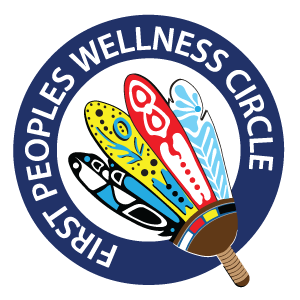
Our Roots
The First Peoples Wellness Circle has its roots in the good work and legacy of the Native Mental Health Association of Canada (NMHAC), which was led by pioneers in the area of Indigenous Mental Health, including the founding fathers Dr. Clare Brant, Joan Glode, Dr. Marlene Brant-Castellano, Dr. William (Bill) Mussell and Robert Allen. The NMHAC was built on a foundation of connectedness and relationships. Through their pioneering work, they offered Indigenous community workers and non-Indigenous allies unique opportunities to explore, share, network and advance the dialogue on Indigenous ways of knowing and doing. NMHAC always strove to highlight the successes of Indigenous communities in addressing mental health challenges using indigenous knowledge and evidence at capacity-building gatherings.
Although NMHAC lost sustainability to continue their work, the passion, dedication and vision of these leaders led to investments in collaborative visioning and partnerships that culminated in June 2015 in the merger of the National Native Addictions Partnership Foundation (NNAPF) and the NMHAC. This resulted in the formation of the Thunderbird Partnership Foundation and the First Peoples Wellness Circle. Together, these organizations represent some of the most current and promising thinking on mental wellness within the First Peoples of Canada.
FPWC exists to promote wellness based on traditions and cultures that support healing and wellness. The Board co-chair states “we are building on what we have learned from our forefathers and foremothers, while still evolving and learning from other traditions and practices around the world. Our work is based on the Indigenous value system of caring and sharing. We are committed to integrating the best of all worlds— using the optimal tools we can get to support the healing and wellness or our people.” This includes promising Indigenous and promising mainstream approaches. In recent years, holistic models for health and wellness have begun to emerge in mainstream thinking, such as the population health and determinants of health model. These are more congruent with Indigenous conceptions and we welcome these changes. It is also our view that Indigenous traditions and practices have a lot to offer mainstream Canadian Society.
